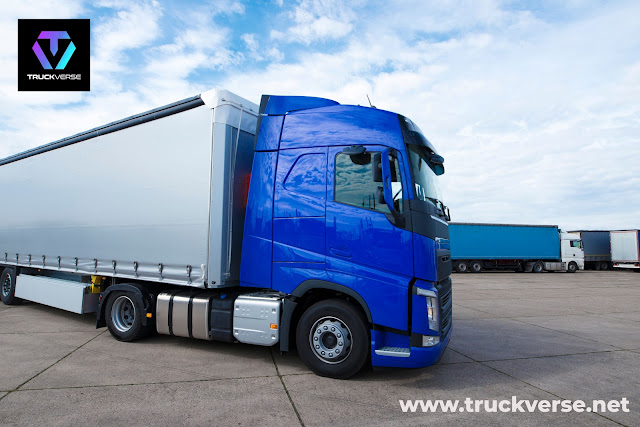Truck Dispatch and the Crucial Role in DOT Compliance: Keeping Your Fleet Safe and On the Road
The trucking industry is the backbone of the American
economy, delivering essential goods across vast distances. But this critical
function comes with a heavy responsibility: ensuring the safety of drivers, the
public, and the cargo itself. This responsibility falls not just on drivers but
also on the shoulders of those who manage them - the truck dispatchers.
In this blog post, we'll delve into the world of truck dispatch and explore how dispatchers play a vital role in guaranteeing
compliance with the regulations set forth by the Department of Transportation
(DOT). We'll discuss the key areas of DOT compliance that dispatchers must be
aware of, the tools and technologies that can aid them in this endeavor, and
the benefits of maintaining a DOT-compliant fleet.
Understanding DOT Compliance
The DOT establishes a comprehensive set of regulations
governing various aspects of commercial motor vehicle operations. These
regulations aim to promote safety on the roads by addressing factors like
driver qualifications, vehicle maintenance, and driver hours of service.
Here's a glimpse into some of the crucial DOT compliance
areas that truck dispatchers need to be familiar with:
- Driver
Qualifications: Dispatchers must ensure drivers possess the
necessary commercial driver's license (CDL) with the appropriate
endorsements for the vehicle and cargo they'll be operating. They also
need to verify that drivers have undergone the required training and
maintain a clean driving record.
- Vehicle
Maintenance: Dispatchers play a part in ensuring that the
assigned vehicles are in top condition. This involves verifying that
pre-trip inspections are conducted and documented, and that maintenance
schedules are adhered to.
- Hours
of Service (HOS): The DOT dictates strict limitations on the number
of hours a driver can operate a commercial vehicle within a specific
timeframe. Dispatchers need to be well-versed in these regulations and
assign loads that allow drivers to stay compliant with HOS rules. This
includes monitoring drivers' logs through Electronic Logging Devices
(ELDs) and ensuring they take mandated rest breaks.
- Vehicle
Registration and Licensing: Dispatchers must confirm that the
vehicles in the fleet are properly registered with the DOT and carry the
necessary permits for the types of cargo they transport.
The Dispatcher's Toolkit for DOT Compliance
The good news is that truck dispatchers don't have to
navigate the complexities of DOT compliance alone. Several tools and
technologies are available to streamline the process and ensure adherence to
regulations.
- Fleet
Management Software: These software solutions offer a centralized
platform for managing drivers, vehicles, and loads. They can automate
tasks like pre-trip inspection checklists, track vehicle maintenance
schedules, and monitor driver logs from ELDs.
- Compliance
Resources: The Federal Motor Carrier Safety Administration
(FMCSA), a branch of the DOT, provides a wealth of resources for trucking
companies and dispatchers. These resources include educational materials,
compliance checklists, and guidance documents.
The Benefits of DOT Compliance
Maintaining a DOT-compliant fleet goes beyond simply
avoiding hefty fines and penalties. Here are some of the key benefits reaped by
companies that prioritize compliance:
- Enhanced
Safety: By ensuring drivers are qualified, vehicles are
well-maintained, and HOS regulations are followed, dispatchers contribute
significantly to reducing accidents and creating a safer environment for
everyone on the road.
- Improved
Efficiency: Streamlined compliance processes through technology
and proper training can save dispatchers valuable time and allow them to
focus on optimizing routes and managing loads more effectively.
- Enhanced
Reputation: A company with a reputation for DOT compliance
becomes a more attractive option for both clients and potential employees.
Conclusion
Truck dispatchers play a critical role in keeping the wheels
of the trucking industry turning. By prioritizing DOT compliance, they ensure
the safety of their drivers, the public, and the cargo they transport. By
embracing the available tools and resources, dispatchers can navigate the
intricacies of DOT regulations with confidence, contributing to a safer and
more efficient trucking industry.




Comments
Post a Comment